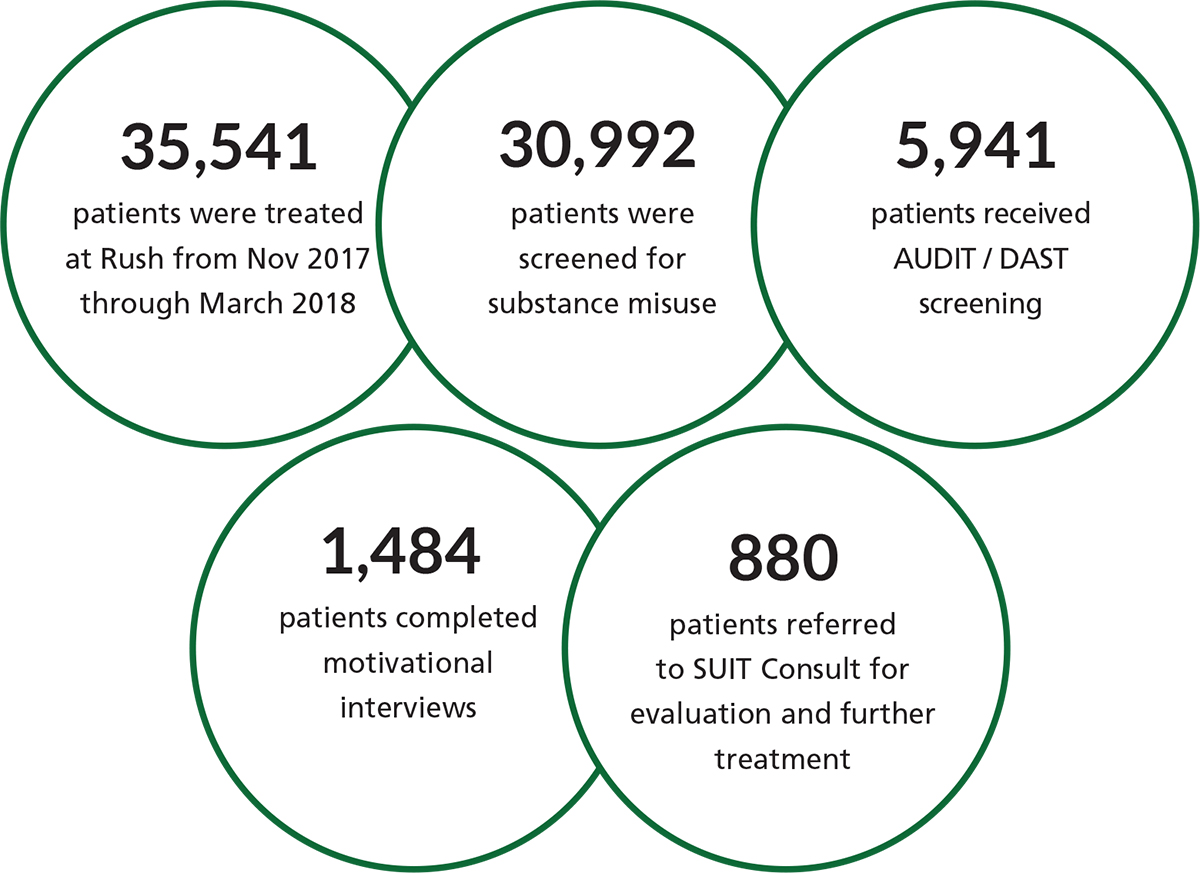Every day, hospitals across Illinois experience the devastating effects of our national opioid crisis. The program being implemented by Rush is an example of innovative hospital-based strategies that can be effective in fighting this serious public health problem.
Dr. Maria C. Bruni,
Acting Director of the Illinois Department of Human Services, Division of Alcoholism and Substance Abuse
SUIT Outcomes to Date
The year the SUIT program was established (2017), Chicago led the nation in overdose deaths involving opioids (796). Overdose deaths as a percentage of the population in Chicago was 17% higher than the national average.
Emergency Room visits and admissions costs are increasing rapidly. The year before SUIT was launched (2016), overdose costs related to hospital admissions, treatment, comorbidities, and stabilization for opioid misuse patients exceeded $10 billion nationally.
Rush has not been exempt from the effects of the opioid crisis. The SUIT program at Rush was designed to identify patients with SUDs who are hospitalized with acute comorbidities and offer treatment at the moment patients might have more motivation to change their substance use behaviors.
SUIT helps overcome the siloed structure of departments that can create barriers to the implementation of collaborative and timely interventions. The integrated, multidisciplinary team of the SUIT program enables more efficient utilization of limited mental health care resources.
Findings suggest the SUIT program is associated with reduced healthcare utilization costs and improved health outcomes.
- Among patients who received a SUIT consult the average length of stay was significantly shorter compared to those who did not. (1.71 days shorter).
- The 30-day readmission rate decreased among patients who received a SUIT consult (6.5%) versus those who did not (10.3%).


